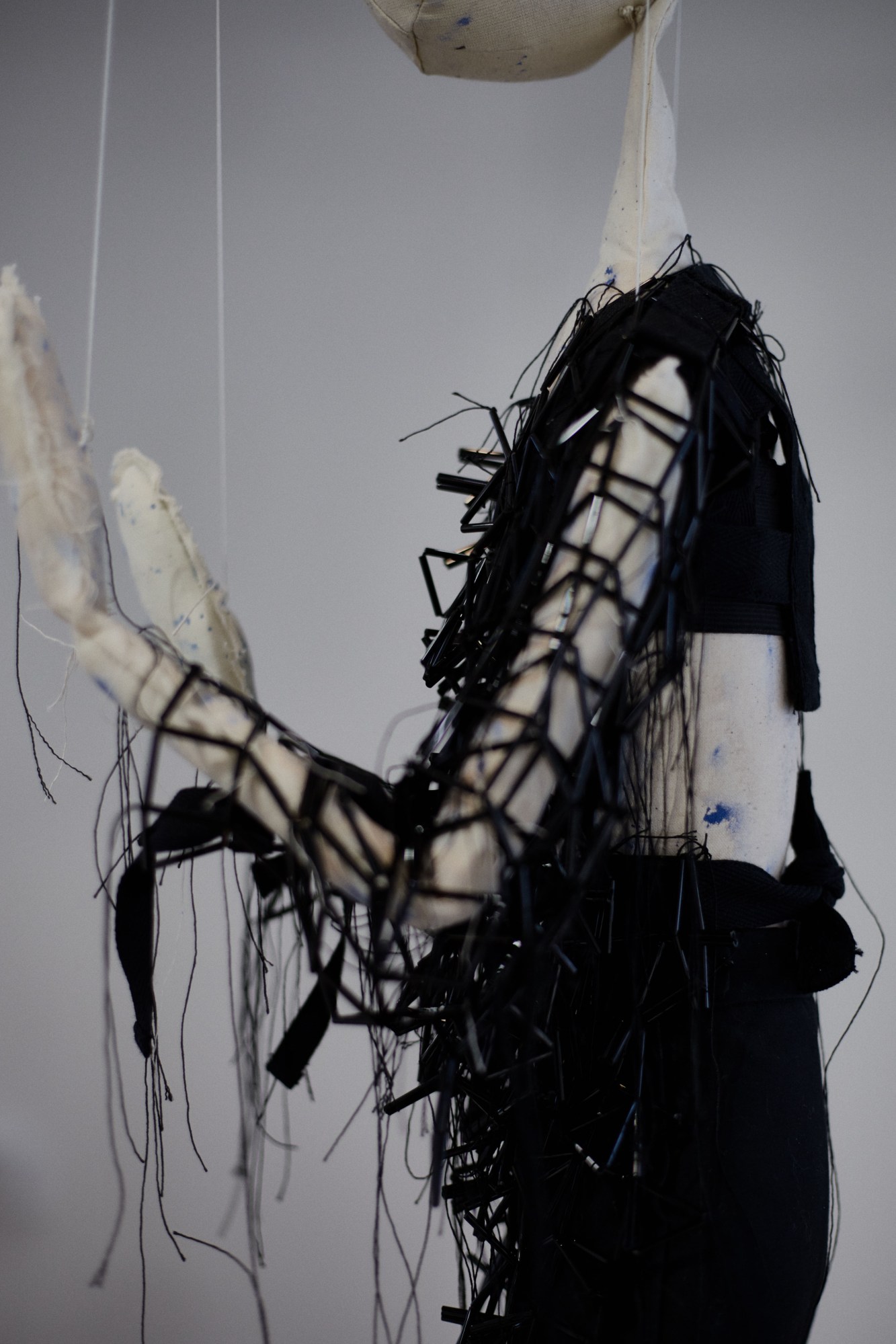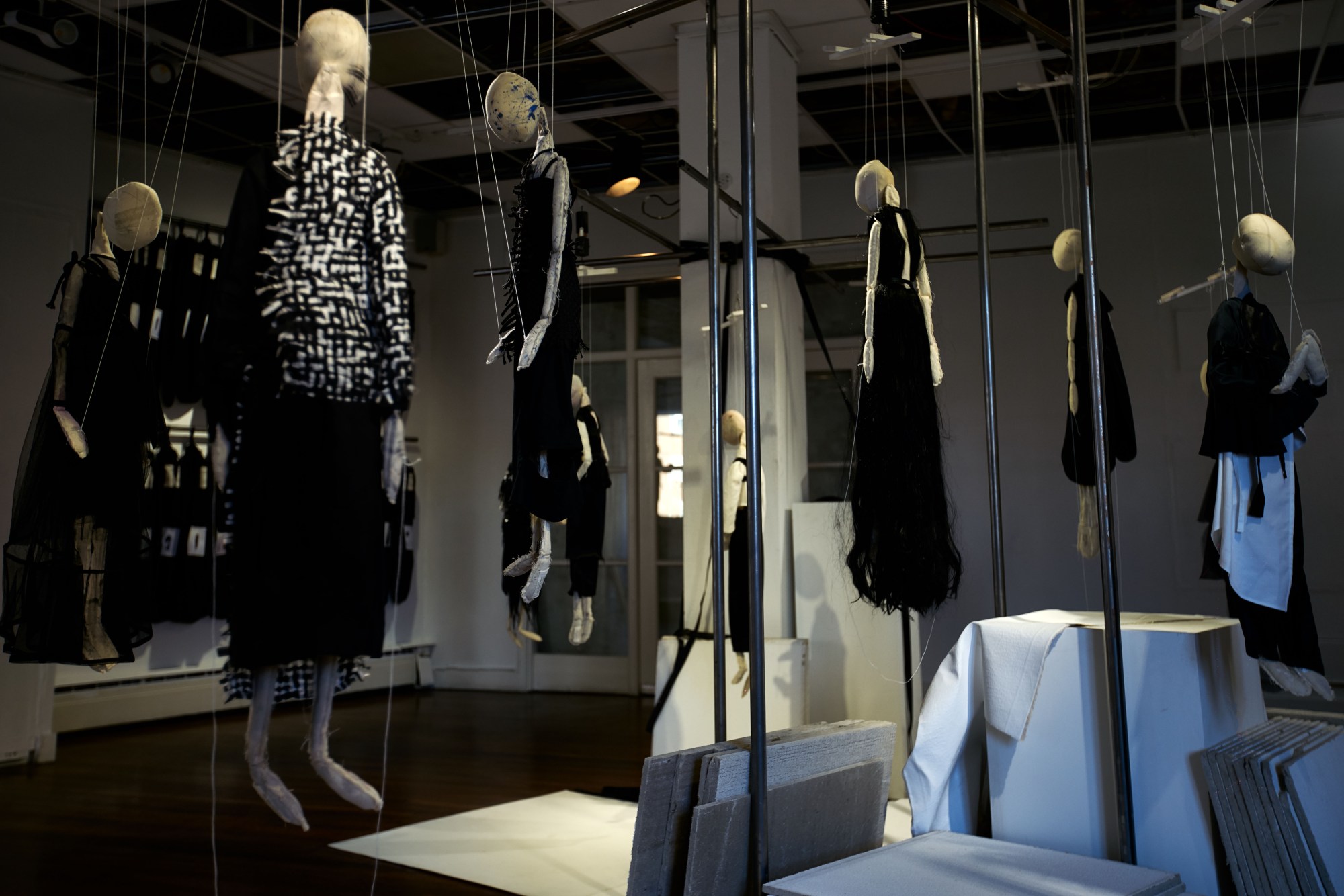“I’ve always wanted to show my work beyond the traditional catwalk setting,” Phoebe English told i-D, as her Inanimate, Animate. (Only) Half The Reflection exhibition opened at the Morley Gallery. “I like transforming spaces and communicating with design, and the walking up and down thing doesn’t always work well for that.” Set apart from mass made ‘fast’ fashion, this entirely made in England luxury label strives to pause the ever-accelerating product conveyor belt that is fashion week. A welcome respite from LFW.
The first half of Inanimate, Animate. (Only) Half The Reflection is an intricate installation that showcased the Phoebe English autumn/winter 19 collection. Set in this environment, visitors can study the construction and technique of English’s design process. As these pieces explore imaginative handmade textile solutions from recycled and waste materials, fabric-saving methods and sustainable fabric sourcing, a blink-and-you’ll-miss-it catwalk parade just doesn’t work. The collection, with its strong emphasis on sustainability, sits alongside the Phoebe English “marionettes” — 30 puppets outfitted in miniature versions of her greatest hits which were initially displayed at English’s V&A Fashion in Motion in November 2017. “When we showed them at the V&A, they were on display for 20 minutes at a time, but as there are over 30 of them, I wanted to give people the opportunity to come and see them in detail and for longer.”
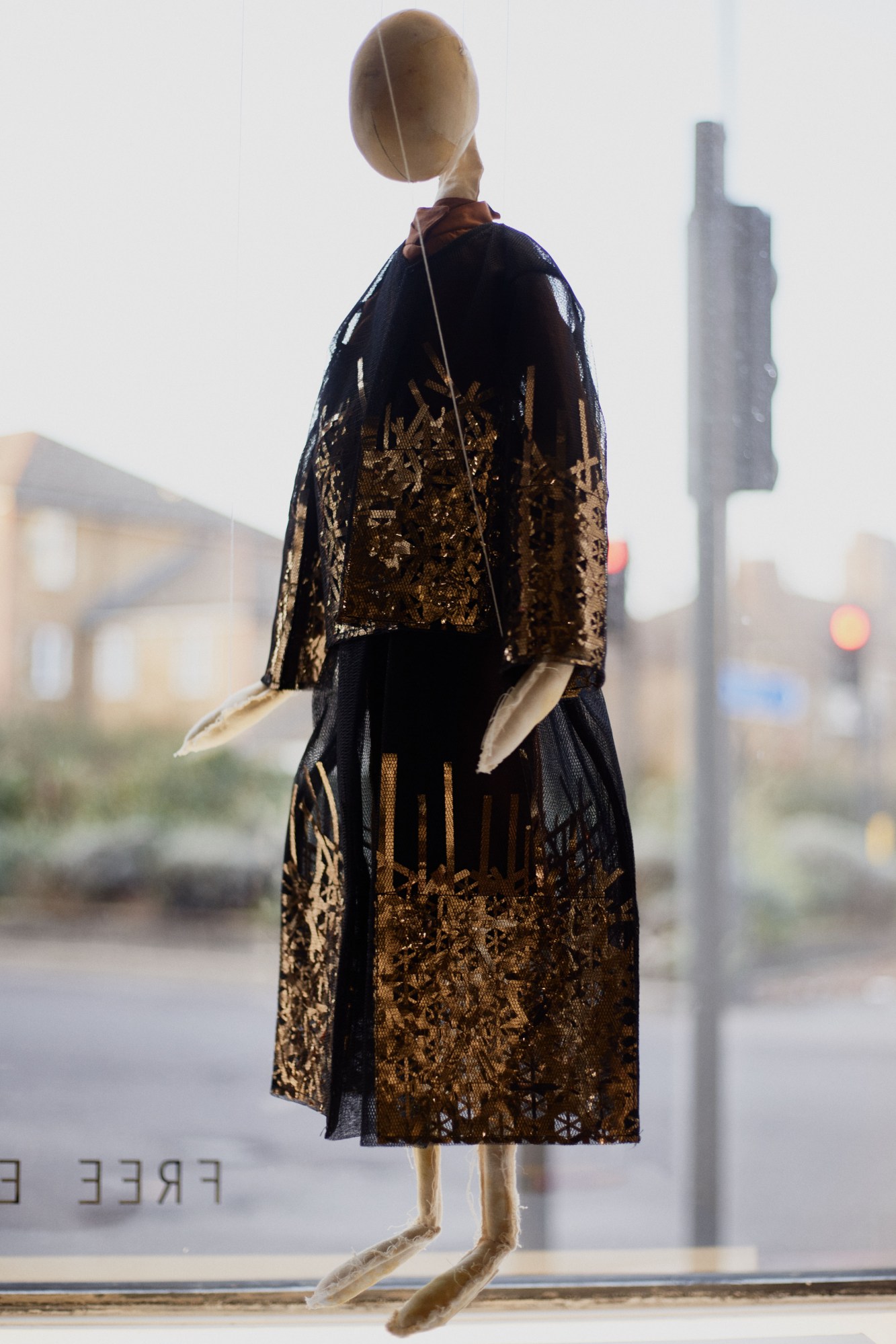
While borrowing and building upon her recent presentation experiences, this exhibition affirms English’s “self-revolution” and highlights her continued push towards sustainability. As the cross-party Environmental Audit Committee that English submitted evidence for publishes its report and calls on the government to make fashion retailers take responsibility for the waste they create, now is the perfect time to take your time to consider her proposition.
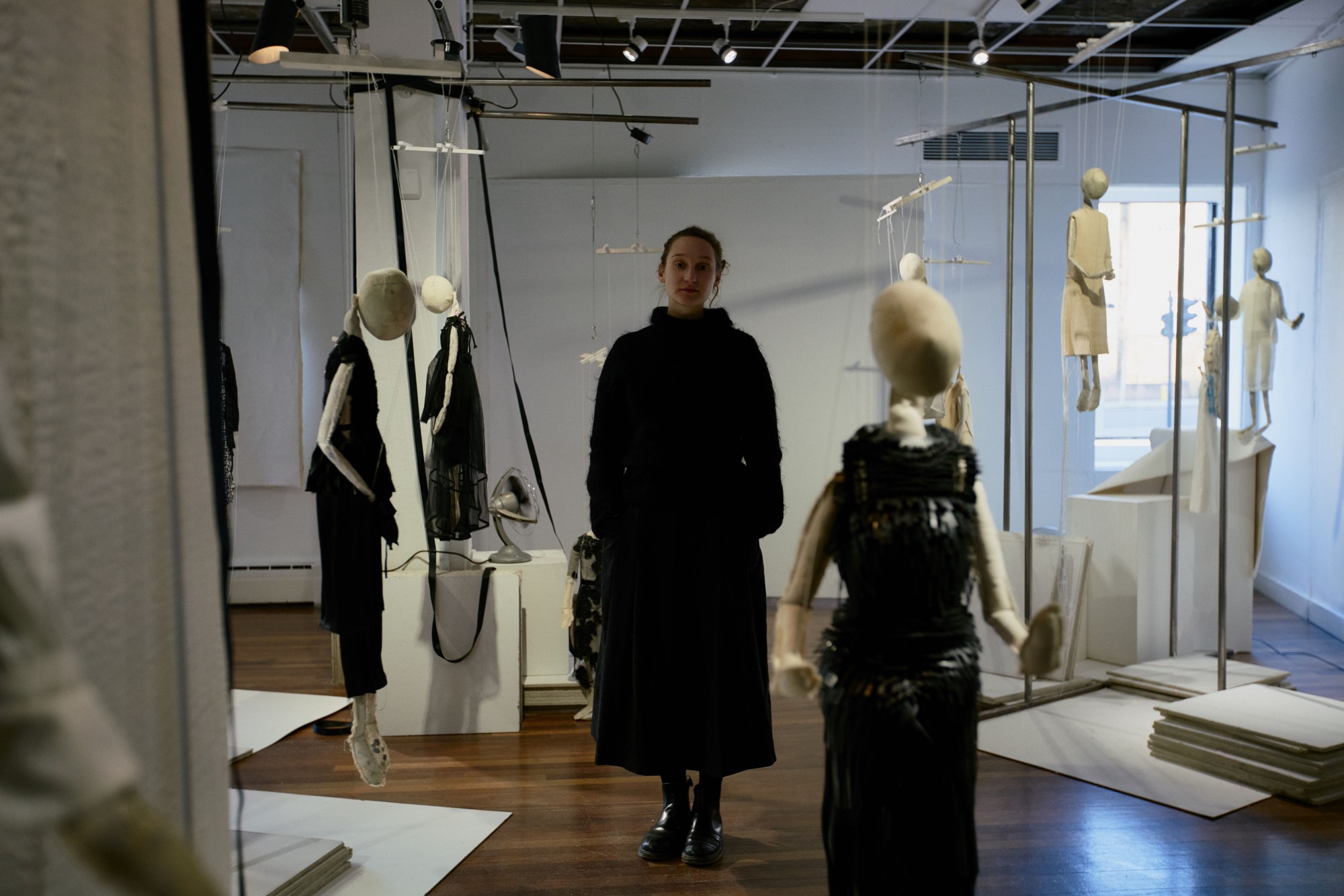
This explores Phoebe English the label and the designer, how does the exhibition make you feel?
In a sense, the exhibition makes me feel a sense of completion. There’s a satisfaction at seeing the whole journey; the ideas I was tentatively exploring as a graduate next to everything we have built as a company and then alongside the new direction and methods which we are now exploring and aim to push into the future.
I’d like people to take away some feeling of emotion with them. The puppets are a very emotional body of work for me, they were made at a time when I was losing someone I loved and I think in retrospect I was possibly ‘bringing them to life’ to compensate for the loss of this person. In the act of revisiting my whole body of work, I was actively looking forwards into the future. It was a project which was about looking backwards and going forwards. Sometimes you can see more of something when you can see less of it, the puppets are a small condensed version of my designs, but for some reason by being smaller they are ‘louder’ and more present.
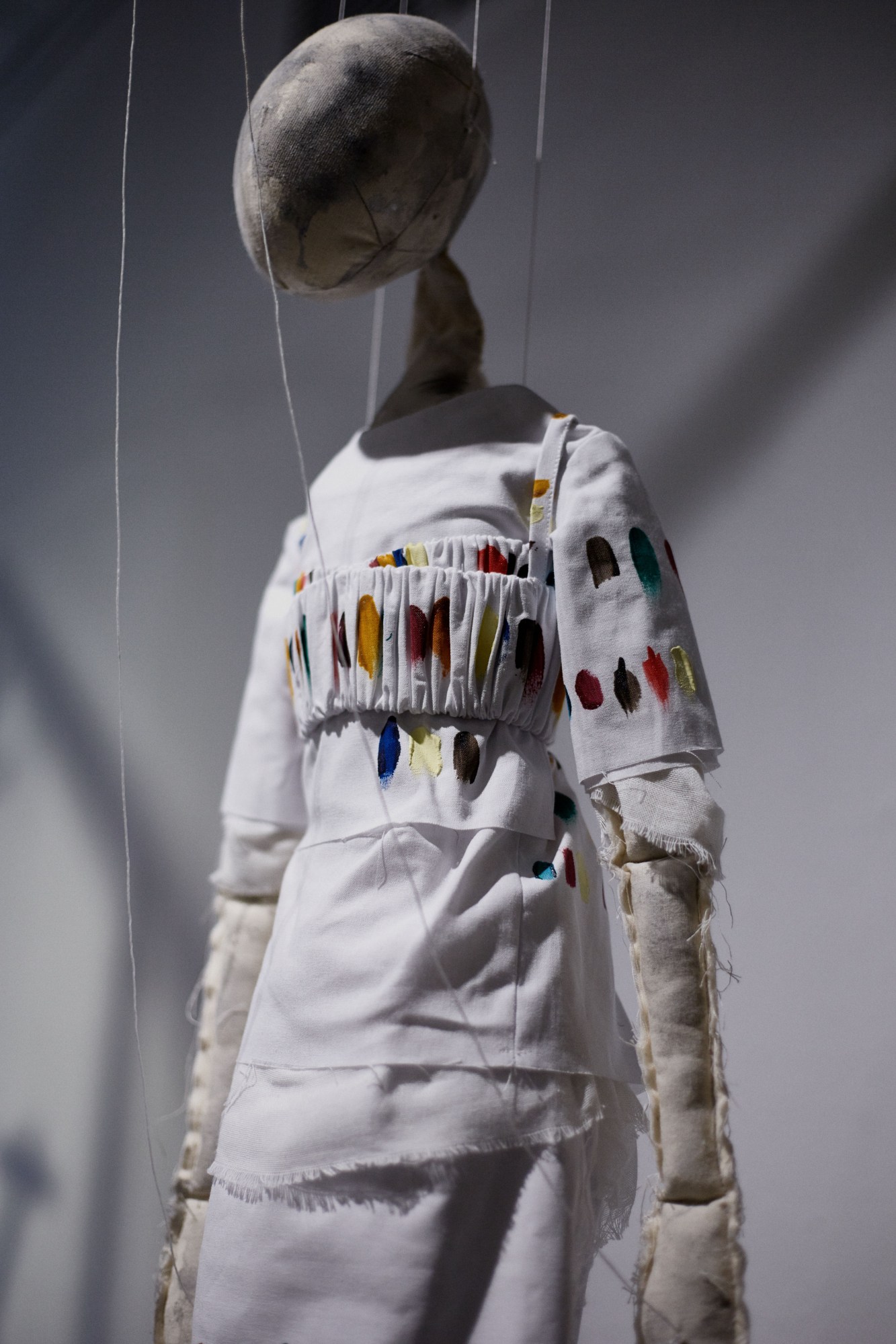
You’ve long been part of a new generation of talent challenging the British fashion industry on issues of ethics and sustainability. How conscious are you of being at the frontlines of changing fashion for the better?
I wouldn’t say it is something that I label myself with, it’s more a sense of these being responses that I’m having to the situations that I’m surrounded with. I think a greater awareness of the processes which go into making our clothes and how we are consuming them is really key in understanding how we can ‘do fashion better.’ We all need to contribute to solving this, as consumers, buyers, stylists, writers and as designers we have a very, very key responsibility.
What changes would you like to pioneer? What more can and should be done?
As designers we need to have a greater awareness of the complete picture — what processes, materials, distances etc. go into or raw materials before we use them, how and why we use them, and consequently what happens to them after we sell them and what business models we are selling them through. We are making too much and not using it enough. Producer responsibility has never been more important than it is now. What happens when you are finished with your clothes and they need to ‘go away’? There isn’t that option for clothing, it doesn’t biodegrade due to the number of different material components that are in a garment and that makes them very hard to recycle. The earth is drowning in the disposable clothing that we are continually churning out. Our lakes and rivers our either being drained for fabric farming or filled with hazardous fabric dye chemicals, our oceans are full of the plastic clothing microfibres which come from washing our synthetic clothes in washing machines, (clothing makes up a massive 30% of the total plastics in our world oceans.) We then eat those plastic micro-fibres in fish and we then breath them into our lungs when river water dries on the crop fields after watering, and which are then blown by the wind into the air we breathe — we are both breathing and eating our own plastic clothing. This information is out there, and once you know it, you can’t unknow it.
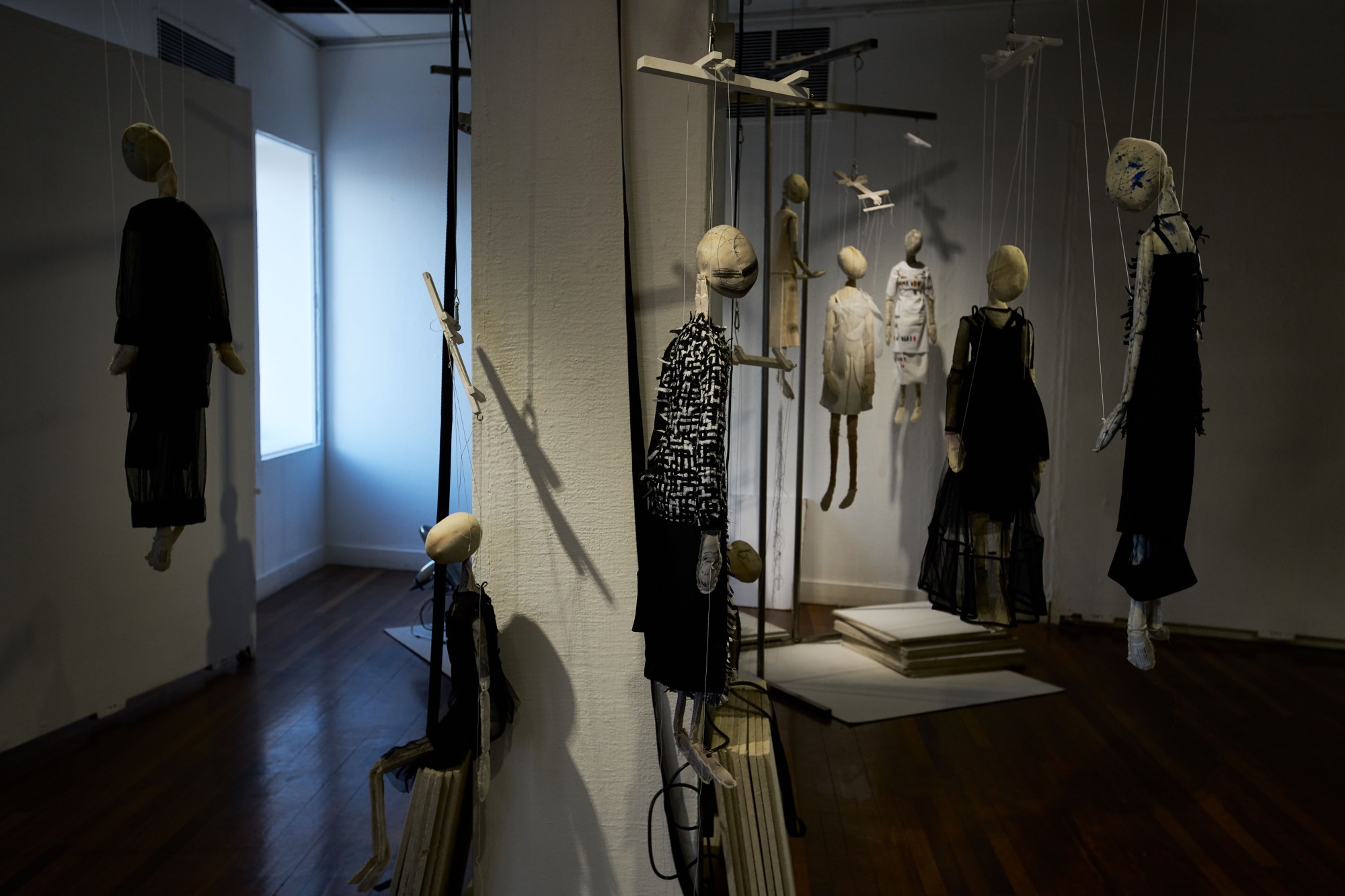
Can you talk us through your autumn/winter 19 collection? Post-presentation you confessed that “there’s probably triple the work in this collection than any other I’ve made”. How do you feel about the collection today?
Yes, that’s absolutely true, it’s much, much more work and also much more expensive in parts to work more sustainably, especially across so many differing categories. It takes more time to carefully research and learn about all the contradictions about the choices you could make — it’s a real mine field. The autumn/winter 19 collection is a collection which I had more time to work on as I took a break from last September’s fashion week as we had joined our men’s and women’s lines together. We had this wonderful long lead time that we were able to use to finally research and talk to people about ways we could do things better.
We used various different certified fabrics, GOTS organic cottons, Oeko-Tex fast growing circular-process bamboo silk, zero-waste pattern cutting, reclaimed fabrics, buttons made from dairy industry excess milk etc., trying as many methods as we could to see where we would make the most difference. It’s been a learning curve, but I also hope a talking point and something which could feed into other people’s design practices too. I have a tiny, tiny team and we managed to do it, so surely it can’t be that hard for larger companies with more staff power to implement these changes as well…
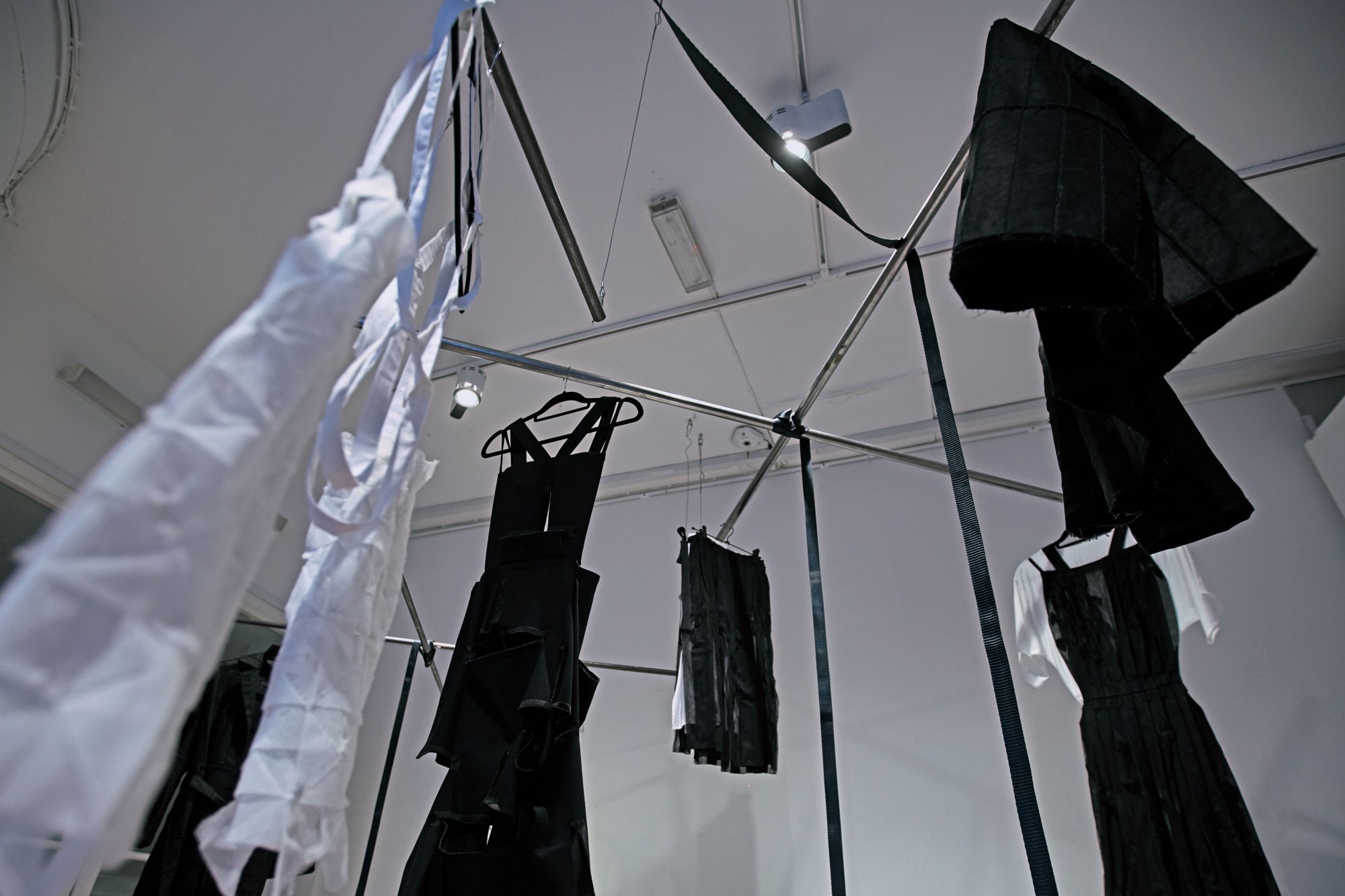
Eight years into Phoebe English, what would you say have been the greatest lessons learned? What do you know now that you wish you knew when you launched in 2011?
I would never in a million years have ever thought I would be running a business, it’s been such a pleasure to have had the opportunity to work with the amazing people that have come through my studio on a daily basis. For me that is the greatest pleasure. Everything after that is a bonus. I wish I would have cared less what people think, there are parts of fashion that I don’t fit into and I think if I had realised that earlier that this is totally fine, it would have been easier for me. I am happy to fit into the parts that I fit into now.
What excites you most about the future of fashion? What do you hope to achieve in 2019 and beyond?
Our agility. As a sector our flexibility as an industry excites me, it has changed so much since I first started working in it. Fashion, more than any other industry I know, can respond in speed — it’s a real strength (and admittedly a downfall also.) That is what we need now more than ever, speed, to alter and develop in order to be doing things better. To help this happen, what we really urgently need is more legislative guidance, which is why I’ve looked forward to the Environmental Audit Committees Inquiry into the Sustainability of the UK Fashion Industry publishing its report today, we will soon see where their advice leads our government.
Inanimate, Animate. (Only) Half The Reflection runs until 20 February at Morley Gallery.
